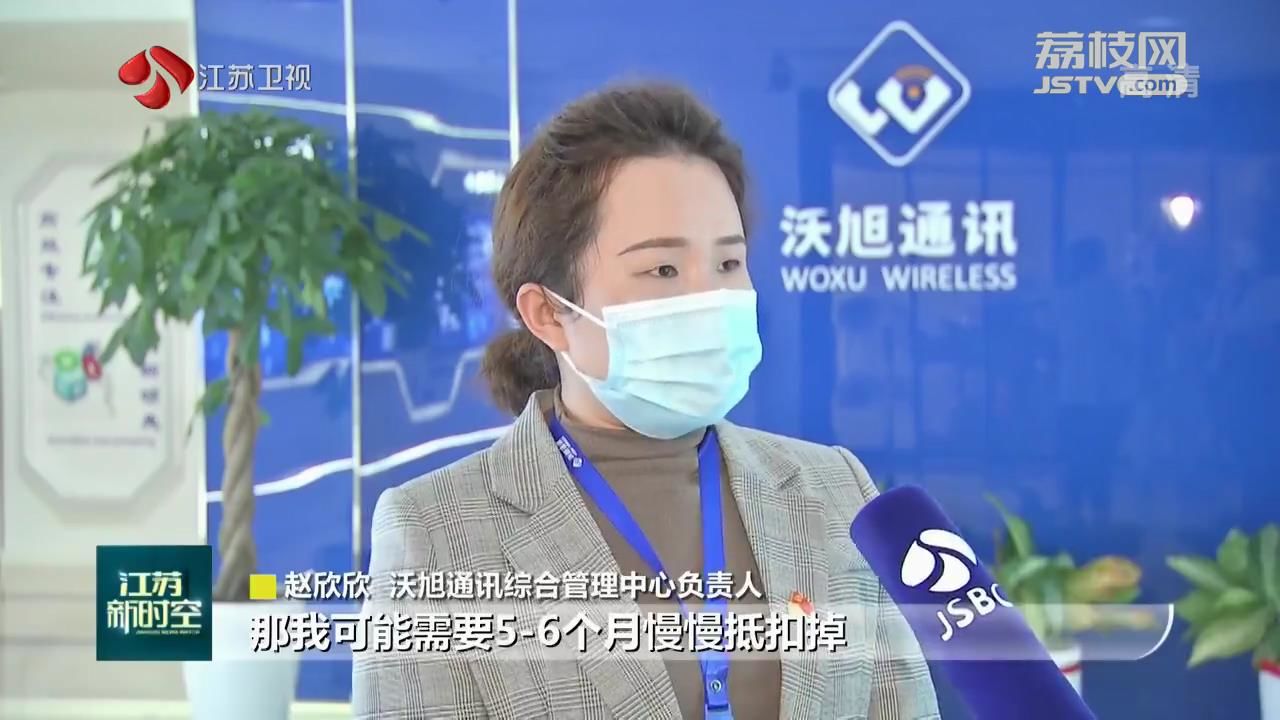East China’s Jiangsu province has taken active measures to introduce a series of tax and fee reduction policies to help market players boost confidence, stabilize expectations, and promote the steady and healthy operation of the economy.
For small and micro enterprises suffering from worst-ever financial difficulties under the impact of the epidemic, Jiangsu has increased fiscal tax support and implemented national preferential tax policies.
Starting this month, Jiangsu has implemented a large-scale VAT refund policy. Tax authorities across the province have stepped up publicity to enterprises through online and offline channels, reminding them to submit declarations as soon as possible.
VAT rebates will be scaled up for micro and small enterprises including individually-run businesses by extending the policy of refunding VAT in full to those eligible, according to the circular jointly released by the Ministry of Finance and the State Taxation Administration.

Zhao Xinxin, Head of Woxu Communication Integrated Management Center

Jiangsu has obtained the first batch of special transfer payment funds of 37.871 billion yuan issued by the central government, supporting the implementation of the tax rebate policy for small and micro enterprises.
Jiangsu has also introduced six types of taxes to be halved for small and micro enterprises in accordance with the highest standards. Eligible enterprises in difficulty will be approved to defer payment of social security contributions, and industries seriously affected by the epidemic will be exempted from property tax and urban land use tax.

Cai Chu, Chairman of Jiangsu Wenxu Information Technology Co., Ltd.
At the same time, the provincial finance has arranged 1.2 billion yuan to provide loan discounts and effective investment incentives for industrial enterprises' "Intelligent Transformation and Digital Transformation" projects.
The province will also continue to implement the inclusive unemployment insurance policy for stable job returns for companies that do not lay off workers or lay off as few workers as possible.
Wuxi has taken measures to encourage enterprises to promote intelligent manufacturing by increasing the proportion of technology and equipment investment subsidies from 8% to 10%. Lianyungang is expected to directly pay 80 million yuan to enterprises.

Changzhou offers 6-month rent-free for small and micro enterprises and self-employed businesses in the service industry that lease state-owned housing.
The State-owned Assets Supervision and Administration Commission of the State Council has called on all State-owned enterprises leasing premises to SMEs or individual businesses in the service sector to exempt them from paying rent for up to six months in high-risk areas and three elsewhere.





